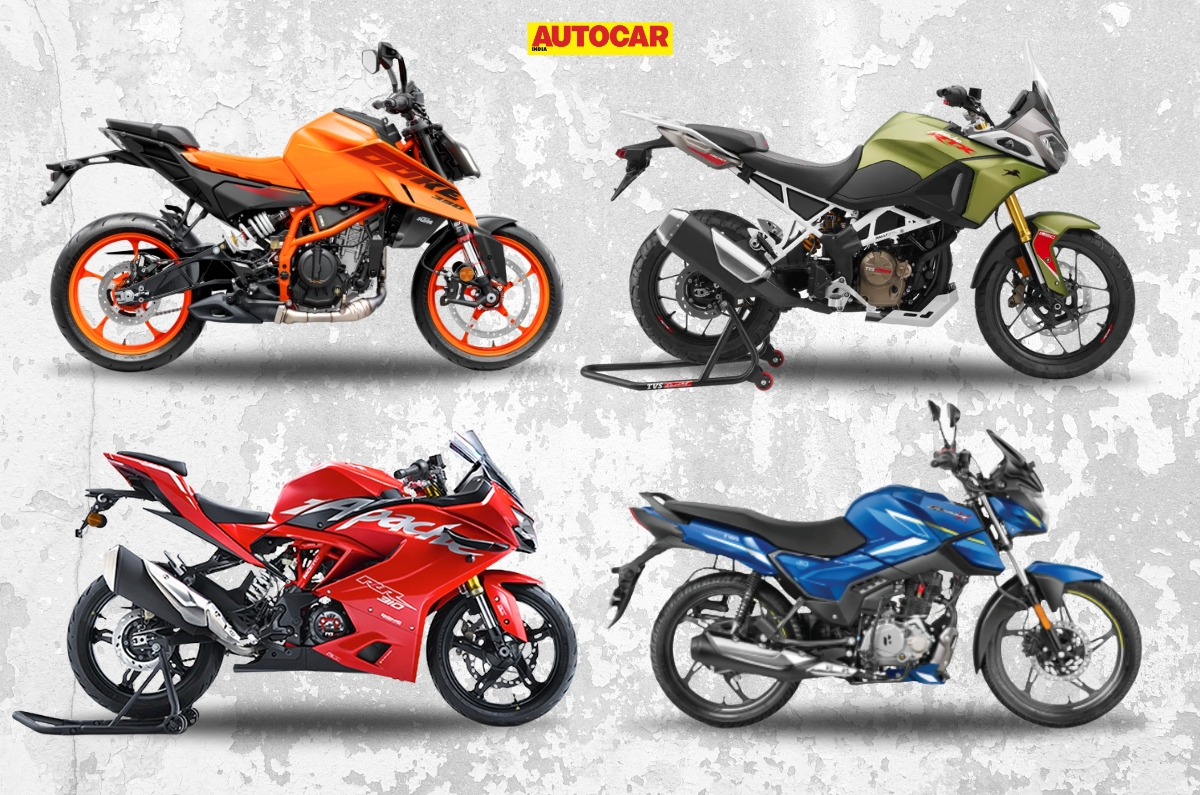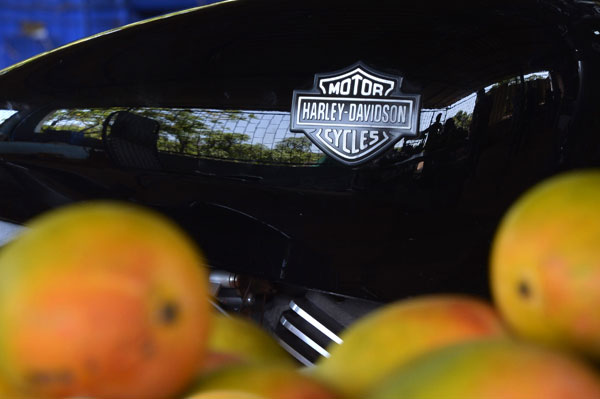Shoeb Hansari is a motorcycle racer you’ve never heard of. You probably were never going to. A few weeks from now, a newspaper column could appear, matter-of-factly mentioning his passing in a road accident. For the sake of filling up the white spaces, the story could be garnished with some perspective on the rise of motorcycle fatalities. You’d nod in resentment, at best, and flip over to read on about whichever celebrity has the nation up in a furore that day. Shoeb doesn’t want you to hear of him anyway; he’s just a statistic waiting to be realised. That might be all of us, in a way, but finding complacence in the knowledge is what separates us from them. His identity is inconsequential.
Set the controls
It’s a quiet afternoon at DCP Nandkumar Thakur’s office at the Mumbai Traffic Police headquarters in South Mumbai. A friendly face, if a visibly tired one, DCP Thakur had played an instrumental role in the Road Safety Month, which had concluded only the night before. “We’ve taken 300 bikes off the road!” he exclaims, sounding satisfied with the feat. With hundreds of motorcyclists apprehended and taken to task for rash and negligent riding, the Mumbai Police’s traffic division had spent the month working round the clock and yielding terrific results. It’s a high-risk job and, over the years, many police workers have paid a heavy price for it. There is, after all, a difference between standing in the way of a motorcyclist heading in your direction at 60kph, and one that is determined to not do anything about it.
“Our objective is not so much to penalise than to educate. It is a dangerous, irresponsible activity, and it can destroy families,” he says, browsing through a string of messages on his constantly buzzing phone. “To be honest, they are not criminals, and we try to dissuade them because they don’t understand the consequences of all this. A cancelled licence can impact things like passport verification and even, sometimes, come in the way of getting a job.” That street racing is a sociological issue is quite well-established; that’s where the cafe racers of the sixties came from, too!

I’ve overstayed my brief appointment, and as I gather my belongings, he quips, “The only solution to this problem is education. If children are taught about road safety at the primary school level, we’d have a much better situation.” It’s an obvious observation, but one with well-meaning intent. Surely, he’d rather not have this problem to curb.
What do you want from me?
For a brief moment, Shoeb was visibly irritated with the confrontation. I’d caught a glimpse of him going down a desolate stretch by Bandra’s spectacular seafront, the front wheel of his motorcycle hoisted up in the air comfortably, and had decided to flag him down. I was in awe of the effortless wheelie he’d pulled moments ago, but was mindful of not expressing it. “What do you want?,” he brazenly asked, although it didn’t seem to have emerged from downright spite. “I’m writing a story about motorcycle racers like you. If you’re okay with it, I’d like to shoot photographs of you and chat for a bit. The police have had their say, why don’t you have yours?” My frankness was unexpected, even to myself, but it broke the ice. We parked our motorcycles by the Armco barrier.
“I’m Shoeb, you can look me up on Instagram. I have 8,000 followers.” Is that what this is all about, then? A popularity contest of the life-threatening sort? “Not at all! I just happen to be popular. The fame draws in a lot of people, because we’ve had it tough growing up in these parts. I have a job which is quite exhausting. I come here in the evenings, pull a wheelie or two, and that makes me happy.” Shoeb is barely in his twenties and looks it, with such an enviable boyish charm to his intonation, you’d forgive him something far more heinous than a wheelie. “I do participate in the drag races – usually it all happens on a Friday, Saturday or Monday. I like drag racing, but I wheelie only for myself.”
His skill on a motorcycle does account for something, although, ultimately, it’s a mindless, irresponsible act that’s too far down the scale of nonconformism to ever be attested to. In any case, aren’t the statistics, a determined law enforcement and, above all, the possibility of destroying families – their own – a strong deterrent? “I think about it, sometimes, but this scene is addictive. We have so many WhatsApp groups, a very tightly organised structure, and extremely few riders can truly shine – I’m one of them. That fame and respect is very important. But I race because it makes me happy. I know it’s not going to last forever. My mother already wants me to marry and have kids!”
Sheep
Most boy racers fund their dreams doing odd jobs, usually only long enough to be able to buy a used motorcycle. Some, pleased with the steady cash flow, stick it out with food aggregators as delivery agents. It keeps them riding motorcycles – unofficially expected to be ridden a bit fast, too. Rehan is one such racer, the youngest of four brothers, one of whom lost his life to a motorcycle racing crash only a year ago. With the help of supportive and less-skilled friends, he frequently finds himself tearing down the Eastern Express Highway on a borrowed Pulsar 220F.

Unlike Shoeb, Rehan isn’t an awfully captivating orator, but he’s fast, and he has the scars to show for it. He’s flanked by Sagar, who claims to be 18 but doesn’t look it by a long shot. To Sagar, Rehan is an idol – like a Rossi or Marquez of his universe. His growing YouTube channel features Rehan’s law-defying antics in prominence, somewhat explaining the awe. It’s a different story with everyone you meet, but it’s all beyond comprehension.
Echoes
Down a narrow, dimly lit alleyway is where Shoeb lives. It’s a noisy and dense locality, with children running around as if possessed, and an acrid stench. I ascend the precariously steep set of stairs shakily, using the time at hand to contemplate the consequences of my actions, and I don’t mean the ones involving tumbling down the stairs. It turns into regret very quickly. What was I even thinking, trying to extract a story out of an outlaw with no interest in playing by the rulebook? What business did I have being here? These racers can go kill themselves – why do I care?!
“Come on, bro!” Shoeb hollers. He finds my struggle with the staircase hilarious. Half a dozen kittens scram for cover as Shoeb’s father asks me to take a seat in the balcony which, I observe, serves as a room by itself. He appears rough, speaks with visible disdain and certainly doesn’t like motorcycles. Then, he tells me so.
“Aren’t you afraid of what he does?”, I ask him cautiously. “What’s the use? It just makes me angry and upset. He listens only to his mother, and being the youngest in the family, he’s had it way too easy. Growing up, all I had was a bicycle…” The conversation assumes the trajectory that’s stereotypical of the dominant middle classes of the city. Asked why he doesn’t choose to put an end to it, he expresses weariness and instead suggests I do something about it. “I don’t approve of his actions, but he’s a good boy and he’ll figure it out, hopefully in time,” I tell him. It wasn’t my place to take sides.
Shoeb, meanwhile, evades the constant hollering from motorcyclists passing by, vying for his attention, since he’s something of a celebrity in these parts. To be seen riding with him is a matter of pride, and pride, in these parts, is paramount.
Time
I’m in the office on a Monday afternoon, halfway through lunch, when my phone rings. “What’s up, bro?” I try to sound busy. I like the rapport, but am conscious of its ability to blur my objectivity. “Come tonight. We’re racing. 9pm.” I accept and hang up. Something doesn’t feel right. This is the moment I’d been chasing and, all of a sudden, I wished I hadn’t been. Nevertheless, it was time.
It’s dark by the time I meet Shoeb. He seems like his usual self, but not quite, and he’s not the only one. The timing, strangely, is off. Or maybe I’m imagining it. Shoeb might be the world’s greatest idiot, but I’d rather he lived to tell the tale. He’s a young boy with a glint in his eyes and the goodness in him will be of far greater value outside of an obituary.

We’re slicing through traffic at a moderate pace; he’s obviously taking it easy, so as to not lose me. At every set of traffic lights, he pulls away with a wheelie that lasts a quarter mile, deftly shifting through the 6-speed gearbox. His disdain for the law and for other road users is moronic. One ill-timed variable is all it will take for everything to end in mangled metal and scattered plastic, interspersed with their anatomical equivalents. Pardon the graphic narration, if you will. We soon arrive at an intersection on one of the two perennially busy highways within the city. I realise I’m on my own now.
Shoeb exchanges hand signs with another rider of his ilk. This might be the last I’m seeing of him. The thought is poignant and entirely valid. Before I can extract my camera from my tank-mounted bag, they’ve positioned themselves just ahead of a red light, with the traffic behind them having halted. I barely manage to aim my lens at them before they’re off, with a deafening racket – and a shocking spectacle – in a neck-and-neck drag race, the outcome of which will be decided on mutual terms. Another quartet lines up on the makeshift ‘grid’, with seconds to spare before the lights turn green again. It’s completely nonsensical and, to be objective, not very scientific either. One of them clearly jumps the start, but in a world which thrives on the blatant violation of every societal rule, a jump start is hardly sacrilegious.
Twenty minutes later, it’s all over. Having drawn ample attention, everyone’s now on the run. It’s a chaotic dispersal, as the racers blend in with the flow of traffic, turning invisible, like their lives without these motorcycles would have been, with ill-fitting helmets hastily pulled over their heads. I don’t know if I’m going to ever see these faces again – and I’m not sure I even want to. I’ve survived motorcycle crashes courtesy my own youthful exuberances and feel desperate to do something about it, but powerless, too. I would have, if I could separate ‘us’ from ‘them’. But it’s easier to just let someone else do it. After all, we’re only ordinary men.
























